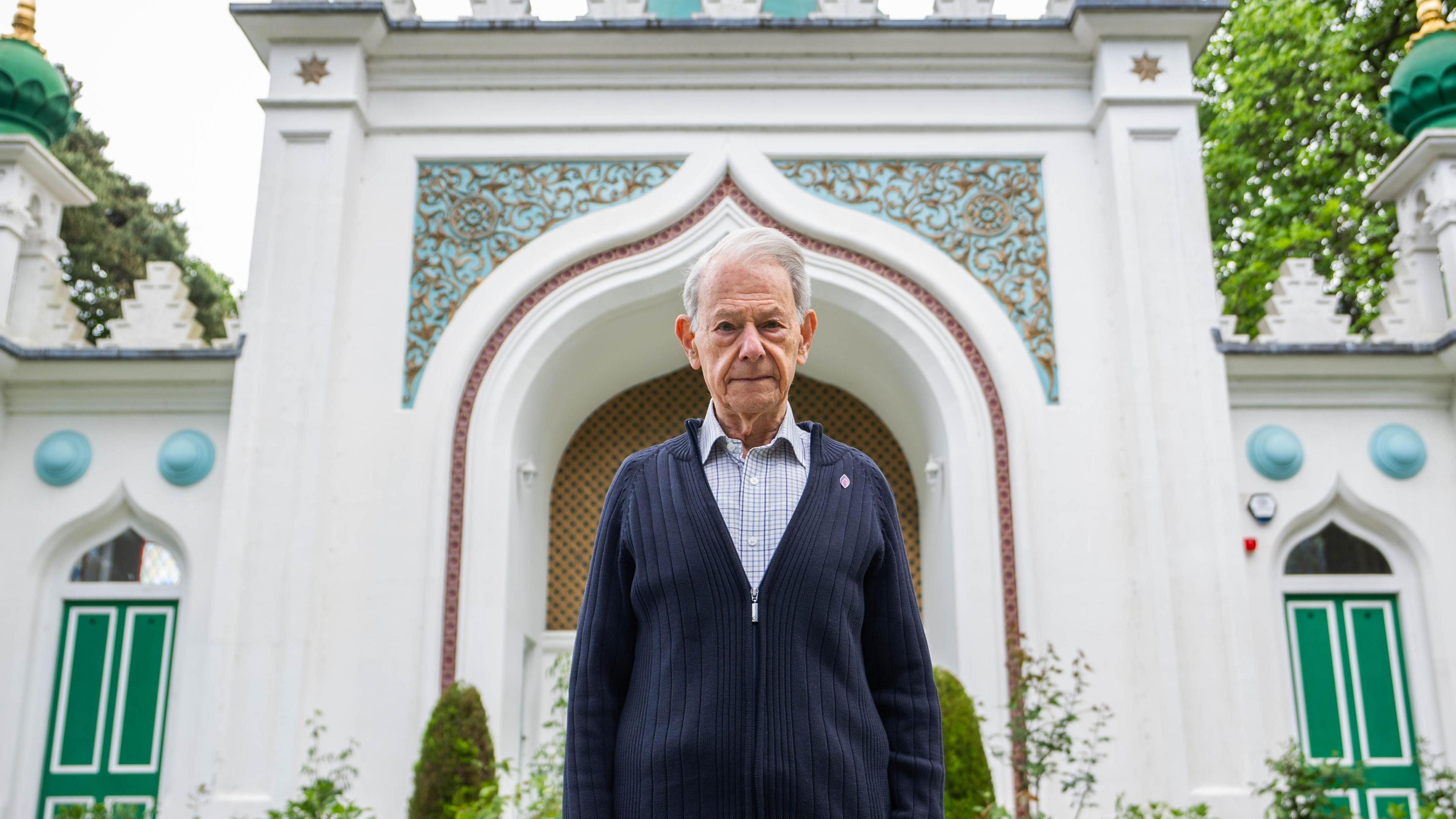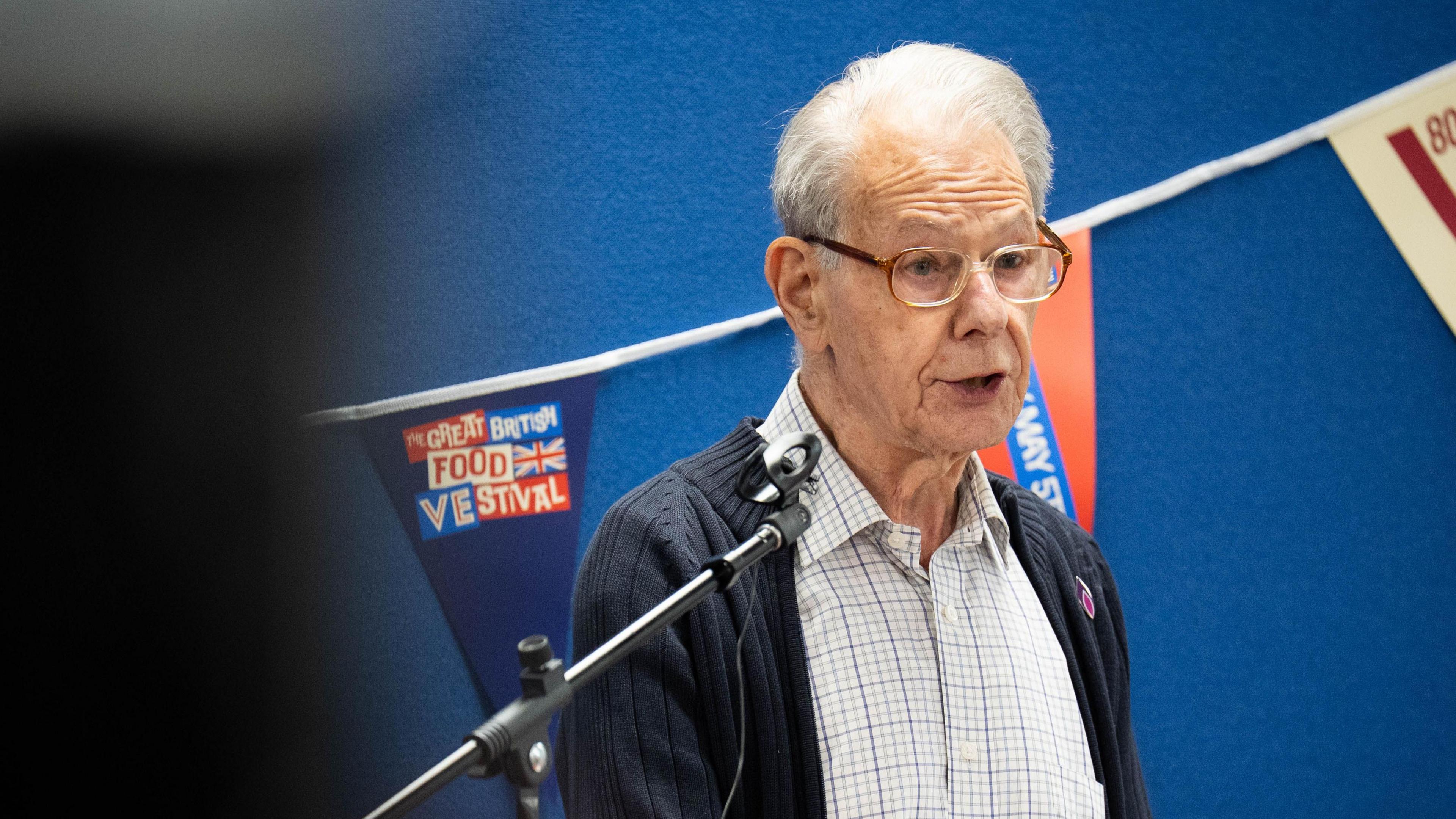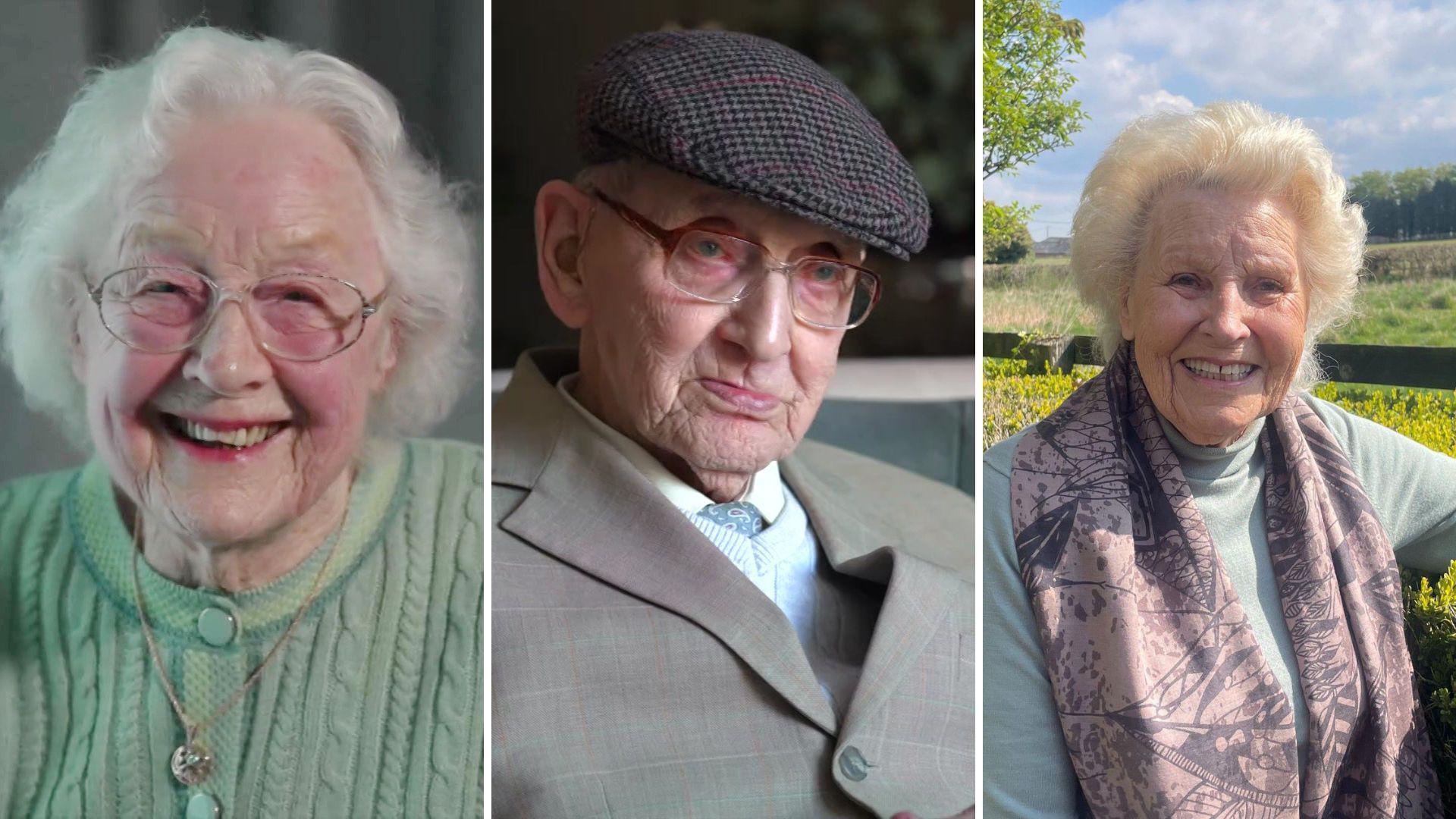'Vital' young remember the past - Holocaust survivor

John Hajdu outside the Shah Jahan Mosque where he gave a speech about the lessons of the Holocaust
- Published
A Holocaust survivor who attended an interfaith VE Day anniversary celebration at northern Europe's oldest mosque has said it is "absolutely vital" that future generations remember the past.
The event, which also honoured the 1.5 million Muslim fighters who lost their lives during World War Two, took place at the Shah Jahan Mosque in Woking, Surrey.
John Hajdu, 88, attended the gathering on Sunday to give a speech about his story of survival as a Jewish child in Hungary under Nazi rule.
"Those who are survivors must take every opportunity to talk about what happened to us," he said.
Mr Hajdu was born in Budapest in April 1937 to a middle class Jewish family, which he described as "not particularly religious".
He was four years old when Hungary entered the war allied to Nazi Germany in 1941.
Two years later, his father was taken to a forced labour camp for Jewish men.
Mr Hajdu said: "It's only once the restrictions started, and my father had to go into the forced labour camp, that the first signs were that things are going to get much worse."

Mr Hajdu spoke to members of the Muslim community ahead of the VE Day 80th anniversary interfaith commemorations
On 5 April 1944 an order was made for all Jews to wear a yellow star as a mark of identification and, by June, Mr Hajdu and his mother were forced to move into a designated "yellow star" house.
It meant the family were only allowed out of the block for three hours each afternoon.
"Abused on the way by the Nazis, you had to be careful where you went because you could have been beaten or even killed," said Mr Hajdu.
By October, Jewish women and children from Budapest were rounded up, but Mr Hajdu and his aunt managed to convince a neighbour to hide them.
His mother was taken to Mauthausen concentration camp in Austria, while he and his aunt were soon forced to move into Budapest's Jewish ghetto.
"People were dying on the street, I was always very hungry," said Mr Hajdu.
On 17 January, 1945 the Soviet troops liberated the Budapest ghetto, allowing Mr Hajdu and his aunt to get out.
Mr Hajdu, his mother, father and aunt all survived.
Asked what message he would like to pass on to future generations, Mr Hajdu, said future generation must continue to learn about what happened to ensure it is never forgotten.
Follow BBC Surrey on Facebook, external, and on X, external. Send your story ideas to southeasttoday@bbc.co.uk, external or WhatsApp us on 08081 002250.
Related topics
- Published4 May

- Published4 May
